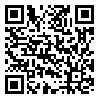Volume 26, Issue 2 (Summer-In Press 2025)
jrehab 2025, 26(2): 0-0 |
Back to browse issues page
Download citation:
BibTeX | RIS | EndNote | Medlars | ProCite | Reference Manager | RefWorks
Send citation to:



BibTeX | RIS | EndNote | Medlars | ProCite | Reference Manager | RefWorks
Send citation to:
Sadeghi Akbari A, Mahmoudirad G. The Profound Impact of External Perceptions and Expectations on Self-Concept in Spinal Cord Injury During Rehabilitation: A Qualitative Study. jrehab 2025; 26 (2)
URL: http://rehabilitationj.uswr.ac.ir/article-1-3499-en.html
URL: http://rehabilitationj.uswr.ac.ir/article-1-3499-en.html
1- Department of Nursing, Faculty of Nursing and Midwifery, Birjand University of Medical Sciences, Birjand, Iran.
2- Department of Nursing, Faculty of Nursing and Midwifery, Birjand University of Medical Sciences, Birjand, Iran. ,mahmoudirad@gmail.com
2- Department of Nursing, Faculty of Nursing and Midwifery, Birjand University of Medical Sciences, Birjand, Iran. ,
Abstract: (125 Views)
Objective: Spinal cord injury (SCI) significantly impacts an individual's life and necessitates extensive rehabilitation to regain independence. Self-concept, defined as the sum of an individual's beliefs and feelings about oneself, plays a crucial role in motivating individuals to engage in rehabilitation efforts and ultimately achieve success. The primary objective of this research is to qualitatively examine the influence of perceptions and expectations of others, particularly therapists and family members, on the self-concept of individuals with spinal cord injuries during the rehabilitation process.
Method: This study employed a qualitative research approach using content analysis to gain a deep understanding of the lived experiences of individuals with SCI. Data were collected through semi-structured interviews with 19 individuals diagnosed with SCI (aged 23-50) who were purposively selected from disability associations and rehabilitation centers. Interviews continued until data saturation was reached. For data analysis, an inductive content analysis approach was utilized. Initially, interviews were fully transcribed and then coded using the MAXQDA software. To enhance the credibility of the findings, Guba and Lincoln's criteria, as well as data triangulation and participant feedback, were employed.
Results: The analysis revealed one overarching theme, "The existential affirmation on traversing recovery," and three main categories. "Creating a new identity based on willpower and effort" (Therapist validation, encouragement from family and friends, and witnessing the positive impact on others were identified as significant motivators). "Entrusting oneself to the therapist" (Therapists play a crucial role in shaping rehabilitation experiences by providing emotional support and fostering self-belief). "Finding Strength in Overcoming Challenges" (Individuals with SCI push boundaries and use external limitations as motivation to progress)
Conclusion: The findings indicate that individuals with spinal cord injuries are profoundly influenced by their perceptions and expectations of their environment. Social support, encouragement from therapists, and observing the progress of others play a crucial role in shaping motivation and self-belief in these individuals. The results of this research underscore the necessity of adopting a comprehensive approach to spinal cord injury rehabilitation. This approach should extend beyond physical recovery and also address psychological and social dimensions. Emotional support from therapists, strengthening self-belief, and fostering motivation in patients are key components of this approach. Individuals with spinal cord injuries often face limitations imposed by their injury. However, the findings of this study demonstrate that many of these individuals have achieved significant progress by transforming these limitations into motivation.
Method: This study employed a qualitative research approach using content analysis to gain a deep understanding of the lived experiences of individuals with SCI. Data were collected through semi-structured interviews with 19 individuals diagnosed with SCI (aged 23-50) who were purposively selected from disability associations and rehabilitation centers. Interviews continued until data saturation was reached. For data analysis, an inductive content analysis approach was utilized. Initially, interviews were fully transcribed and then coded using the MAXQDA software. To enhance the credibility of the findings, Guba and Lincoln's criteria, as well as data triangulation and participant feedback, were employed.
Results: The analysis revealed one overarching theme, "The existential affirmation on traversing recovery," and three main categories. "Creating a new identity based on willpower and effort" (Therapist validation, encouragement from family and friends, and witnessing the positive impact on others were identified as significant motivators). "Entrusting oneself to the therapist" (Therapists play a crucial role in shaping rehabilitation experiences by providing emotional support and fostering self-belief). "Finding Strength in Overcoming Challenges" (Individuals with SCI push boundaries and use external limitations as motivation to progress)
Conclusion: The findings indicate that individuals with spinal cord injuries are profoundly influenced by their perceptions and expectations of their environment. Social support, encouragement from therapists, and observing the progress of others play a crucial role in shaping motivation and self-belief in these individuals. The results of this research underscore the necessity of adopting a comprehensive approach to spinal cord injury rehabilitation. This approach should extend beyond physical recovery and also address psychological and social dimensions. Emotional support from therapists, strengthening self-belief, and fostering motivation in patients are key components of this approach. Individuals with spinal cord injuries often face limitations imposed by their injury. However, the findings of this study demonstrate that many of these individuals have achieved significant progress by transforming these limitations into motivation.
Keywords: Rehabilitation, spinal cord injury, perceived social support, self-efficacy, therapist-patient relationship, content analysis
Type of Study: Original |
Subject:
Rehabilitation Management
Received: 18/06/2024 | Accepted: 12/04/2025 | Published: 13/10/2025
Received: 18/06/2024 | Accepted: 12/04/2025 | Published: 13/10/2025
Send email to the article author
| Rights and permissions | |
 |
This work is licensed under a Creative Commons Attribution-NonCommercial 4.0 International License. |




